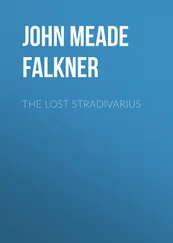John Barth - Lost in the Funhouse
Здесь есть возможность читать онлайн «John Barth - Lost in the Funhouse» весь текст электронной книги совершенно бесплатно (целиком полную версию без сокращений). В некоторых случаях можно слушать аудио, скачать через торрент в формате fb2 и присутствует краткое содержание. Год выпуска: 2014, ISBN: 2014, Издательство: Knopf Doubleday Publishing Group, Жанр: Современная проза, на английском языке. Описание произведения, (предисловие) а так же отзывы посетителей доступны на портале библиотеки ЛибКат.
- Название:Lost in the Funhouse
- Автор:
- Издательство:Knopf Doubleday Publishing Group
- Жанр:
- Год:2014
- ISBN:978-0-8041-5250-1
- Рейтинг книги:3 / 5. Голосов: 1
-
Избранное:Добавить в избранное
- Отзывы:
-
Ваша оценка:
- 60
- 1
- 2
- 3
- 4
- 5
Lost in the Funhouse: краткое содержание, описание и аннотация
Предлагаем к чтению аннотацию, описание, краткое содержание или предисловие (зависит от того, что написал сам автор книги «Lost in the Funhouse»). Если вы не нашли необходимую информацию о книге — напишите в комментариях, мы постараемся отыскать её.
Lost in the Funhouse — читать онлайн бесплатно полную книгу (весь текст) целиком
Ниже представлен текст книги, разбитый по страницам. Система сохранения места последней прочитанной страницы, позволяет с удобством читать онлайн бесплатно книгу «Lost in the Funhouse», без необходимости каждый раз заново искать на чём Вы остановились. Поставьте закладку, и сможете в любой момент перейти на страницу, на которой закончили чтение.
Интервал:
Закладка:
Has this to do with fair Narcissus, wise Tiresias? Whose story is it? It’s a tale of shortcomings, lengthened to advantage. Echo never, as popularly held, repeats all, like gossip or mirror. She edits, heightens, mutes, turns others’ words to her end. One recalls her encounter with Narcissus — no other has nymphed him caveward. A coincidence of opposites. One should, if it’s worthwhile, repeat the tale.
I’ll repeat the tale. Though in fact many are bewildered, Narcissus conceives himself alone and becomes the first person to speak.
I can’t go on.
Go on.
Is there anyone to hear here?
Who are you?
You.
I?
Aye.
Then let me see me!
See?
A lass! Alas.
Et cetera et cetera. Overmuch presence appears to be the storyteller’s problem: Tiresias’s advice, in cases of excessive identity and coitus irrequitus, is to make of withdrawal a second nature. He sees the nymph efface herself until she becomes no more than her voice, still transfiguring senseless sound into plaints of love. Perhaps that’s the end of her story, perhaps the narrative proper may resume. Not quite, not quite: though even sharp-sight Tiresias can’t espy the unseeable, one may yet distinguish narrator from narrative, medium from message. One lesson remains to be learned; when Echo learns it none will be the wiser.
But Narcissus! What’s become of contemptible, untemptable Narcissus, the drug so many have turned on on, and sung themselves on pretext of hymning him? Was Tiresias about to counsel him in obscurity? No. Except to declare that his true love awaits him in the spring at Donacon; discovering who he is will prove as fatal for Narcissus as it’s proving for Oedipus. Queer advice! To see the truth is one thing, to speak it another.
Now where are we? That is to say, where are Tiresias and Narcissus. Somewhere near the Donaconan spring. Who’s telling the story, and to whom? The teller’s immaterial, Tiresias de clares; the tale’s the same, and for all one knows the speaker may be the only auditor. Considerable time has elapsed, it seems, since seer and seeker, prophet and lost, first met in the cave. But what’s time when past and future are equally clear and dark? The gift of suiscience is a painful present: Narcissus thirsts for love; Tiresias sees the end of his second sight. Both speak to themselves. Thebes is falling; unknown to the northbound refugees, en route to found a new city, their seer will perish on the instant the Argives take the old. He it is now, thrashing through the woods near Thespiae, who calls to his lost companions and follows to exhaustion a mock response. Halloo halloo! Falling at length beside a chuckling spring he dreams or dies. The voice presently in his ears is that hallooer’s; now it rehearses Narcissus’s end, seen from the outset:
Why did Tiresias not tell Narcissus what he once told Leirope, that her son would lead a long and happy life if he never came to know himself? Because the message then had become its own medium. Needless to say he sees and saw Narcissus beat about the bush for love, oblivious to pursuers in the joy of his own pursuit. As for that nymph whose honey voice still recalls his calls, he scorns her, and hears his maledictions balmed to music. Like the masturbatory adolescent, sooner or later he finds himself. He beholds and salutes his pretty alter ego in the pool; in the pool his ego, altered, prettily salutes: Behold! In vain he reaches to embrace his contrary image; he recognizes what Tiresias couldn’t warn him of. Has knowing himself turned him into a pansy? Not quite, not quite. He’s resolved to do away with himself, his beloved likewise. Together now. Adored-in-vain, farewell!
Well. One supposes that’s the end of the story. How is it this voice persists, whosever it is? Needless to say, Tiresias knows. It doesn’t sound nymphish; she must have lost hers. Echo says Tiresias is not to be trusted in this matter. A prophet blind or dead, a blossom, eyeless, a disengendered tale — none can tell teller from told. Narcissus would appear to be opposite from Echo: he perishes by denying all except himself; she persists by effacing herself absolutely. Yet they come to the same: it was never himself Narcissus craved, but his reflection, the Echo of his fancy; his death must be partial as his self-knowledge, the voice persists, persists.
Can it be believed? Tiresias has gone astray; a voice not impossibly his own has bewildered him. The story of Narcissus, Tiresias, Echo is being repeated. It’s alleged that Narcissus has wearied of himself and yearns to love another; on Tiresias’s advice he employs the third person to repeat his tale as the seer does, until it loses meaning. No use: his self objectified’s the more enthralling, like his blooming image in the spring. In vain Tiresias’s cautions that the nymph may be nothing altruistic, but the soul of guile and sleight-of-tongue. Who knows but what her love has changed to mock? What she gives back as another’s speech may be entire misrepresentation; especially ought one to beware what she chooses to repeat concerning herself. No use, no use: Narcissus grows fond; she speaks his language; Tiresias reflects that after all if one aspires to concern one’s fatal self with another, one had as well commence with the nearest and readiest. Perhaps he’ll do the same: be beguiled with Narcissus out of knowledge of himself; listen silent as his voice goes on.
Thus we linger forever on the autognostic verge — not you and I, but Narcissus, Tiresias, Echo. Are they still in the Thespian cave? Have they come together in the spring? Is Narcissus addressing Tiresias, Tiresias Narcissus? Have both expired?
There’s no future for prophets. Blind Oedipus will never see the place where three roads meet. Narcissus desired himself defunct before his own conception; he’s been rooted forever by the beloved he’ll never know. Dead Tiresias still stares wide-eyed at Wisdom’s nude entire. Our story’s finished before it starts.
TWO MEDITATIONS
1. Niagara Falls
She paused amid the kitchen to drink a glass of water; at that instant, losing a grip of fifty years, the next-room-ceiling-plaster crashed. Or he merely sat in an empty study, in March-day glare, listening to the universe rustle in his head, when suddenly the five-foot shelf let go. For ages the fault creeps secret through the rock; in a second, ledge and railings, tourists and turbines all thunder over Niagara. Which snowflake triggers the avalanche? A house explodes; a star. In your spouse, so apparently resigned, murder twitches like a fetus. At some trifling new assessment, all the colonies rebel.
2. Lake Erie
The wisdom to recognize and halt follows the know-how to pollute past rescue. The treaty’s signed, but the cancer ticks in your bones. Until I’d murdered my father and fornicated my mother I wasn’t wise enough to see I was Oedipus. Too late now to keep the polar cap from melting. Venice subsides; South America explodes.
Let’s stab out our eyes.
Too late: our resolve is sapped beyond the brooches.
TITLE
Beginning: in the middle, past the middle, nearer three-quarters done, waiting for the end. Consider how dreadful so far: passionlessness, abstraction, pro, dis. And it will get worse. Can we possibly continue?
Plot and theme: notions vitiated by this hour of the world but as yet not successfully succeeded. Conflict, complication, no climax. The worst is to come. Everything leads to nothing: future tense; past tense; present tense. Perfect. The final question is, Can nothing be made meaningful? Isn’t that the final question? If not, the end is at hand. Literally, as it were. Can’t stand any more of this.
Читать дальшеИнтервал:
Закладка:
Похожие книги на «Lost in the Funhouse»
Представляем Вашему вниманию похожие книги на «Lost in the Funhouse» списком для выбора. Мы отобрали схожую по названию и смыслу литературу в надежде предоставить читателям больше вариантов отыскать новые, интересные, ещё непрочитанные произведения.
Обсуждение, отзывы о книге «Lost in the Funhouse» и просто собственные мнения читателей. Оставьте ваши комментарии, напишите, что Вы думаете о произведении, его смысле или главных героях. Укажите что конкретно понравилось, а что нет, и почему Вы так считаете.












